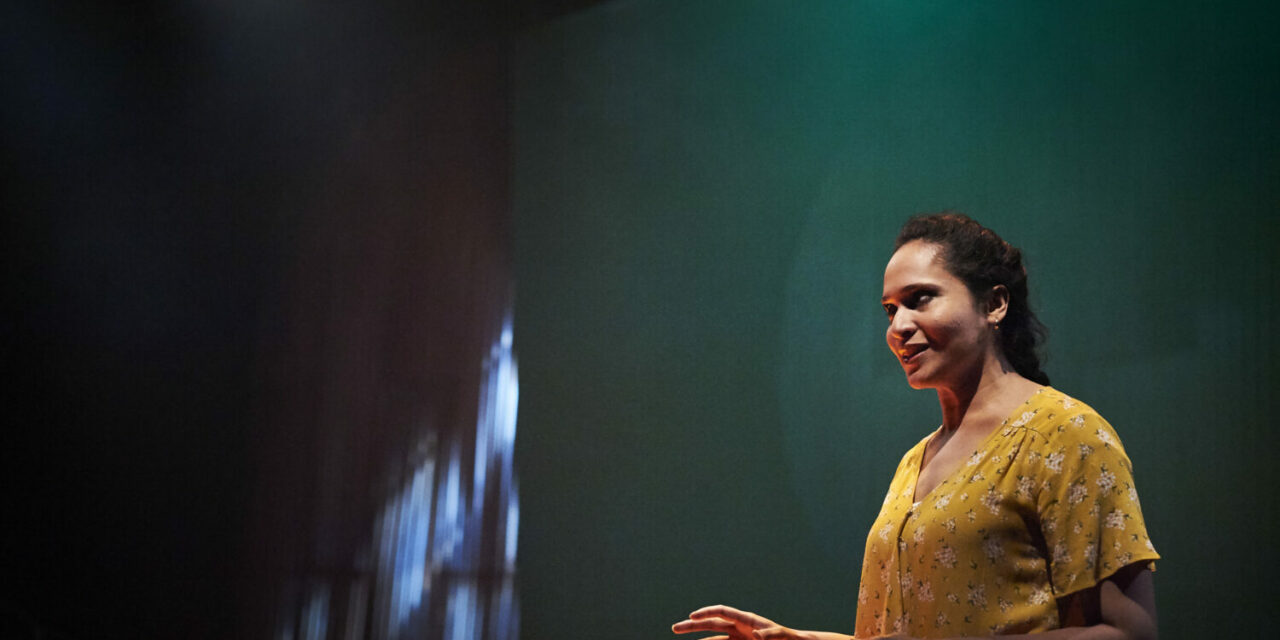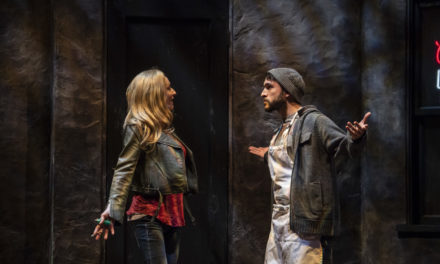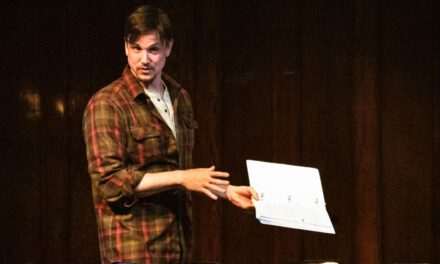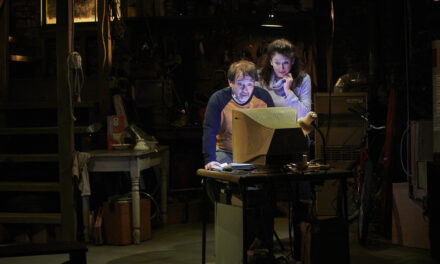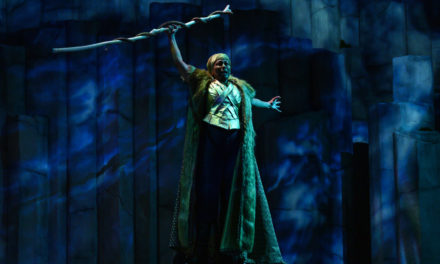Stephen Belber’s new play We Are Among Us pries open the lid on what one of its characters describes as “a really fucked up situation.” In other words, the US involvement in Afghanistan.
It’s hard to write much about this play without spoiling some of the reveals that make it rewarding. Khadija (Nilanjana Bose) is a 22-year-old refugee from Afghanistan who lives in La Jolla, California, and works at Whole Foods. Both of her parents were victims of the violence brought by the US invasion of her country: her mother was accidentally killed by a US tank, and her father’s body was found in an unmarked grave a few weeks after enduring a brutal interrogation at the hands of US soldiers who suspected him of having allowed the Taliban to use his property as a base from which to launch a deadly mortar attack on American troops. One of those soldiers is now running for mayor of a major US city, and Shar (Jo Mei), a freelance reporter, is investigating whether the soldiers had tortured him to death and covered it up. She contacts Laura (Lisa Velten Smith), who had been stationed with those soldiers as a private contractor and overheard the interrogation, to dig into the matter; it’s clear that Laura knows more than she has previously admitted, and her refusal to talk about the incident piques the curiosity of her son Beau (Eric Wiegand), who starts doing some investigating of his own. Meanwhile, Laura’s conscience has been pricked enough that she visits Taylor (Kyle Haden), one of the soldiers and her former lover, to try to find out what really happened behind the closed doors of the interrogation room.
That’s the play’s set up, but as the truth about the fate of Khadija’s father’s death unspools, in both private conversation and public media, the situation doesn’t get resolved. Rather the opposite occurs: the moral quandaries become stickier, the gray areas get murkier, the difference between perpetrator and victim becomes harder and harder to distinguish, the lines between right and wrong get blurrier, in short: the entire situation becomes even more fucked up.
Under Adrienne Campbell-Holt’s direction, the ensemble presents the story with nuance and sensitivity. Bose, in particular, captures in her avoidance of eye contact with others the anguish and ambivalence her character feels over reliving the past – it’s an eloquent choice that not only signals her discomfort but also speaks to the vast cultural gulf she must traverse as an Afghan woman living in the US.
The strength of this play lies in the way its moral complexity implicates everyone in its world in both good and bad – while all of its characters produce compelling arguments to justify their actions, none of them has clean hands. It takes a while for the play to build the foundation on which to show that strength, however, and the drama feels a bit flat and directionless until it reaches about the halfway point. That’s about the point at which Belber lands one of the play’s best scenes, in which the hyper-eloquent Taylor confronts Shar about the value and purpose of the muck she is attempting to rake up – it’s one of those scenes in which two characters are on polar opposite sides of an issue, and yet each is convincingly in the right.
From that moment on, any notion that we might be occupying a universe in which there are clearcut choices between right and wrong quickly recedes, and suddenly the odd angles of Narelle Sissons’ scenic design, combined with Andrew David Ostrowski’s lighting design, which transforms the color of the set seemingly at will, all start to make sense. Nothing is what it seems in Belber’s world of moral relativism, and much as we may wish for it, Belber bravely resists the temptation to provide a neat resolution to the conundrum he has concocted.
This post was originally published on The Pittsburgh Tatler and is reposted with permission.
This post was written by the author in their personal capacity.The opinions expressed in this article are the author’s own and do not reflect the view of The Theatre Times, their staff or collaborators.
This post was written by Wendy Arons.
The views expressed here belong to the author and do not necessarily reflect our views and opinions.

